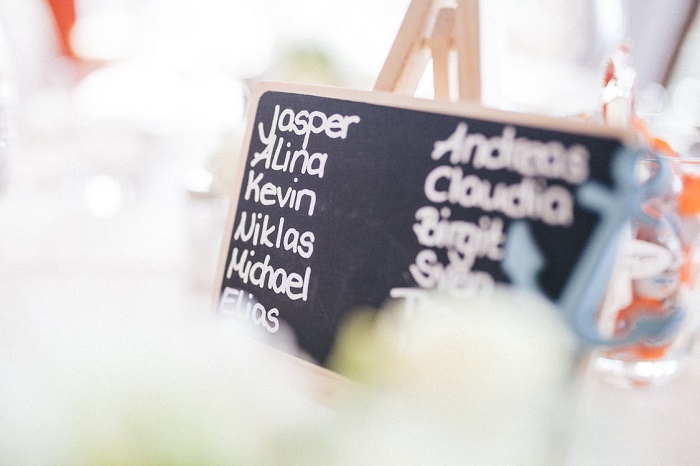100 Male Viking Names and Their Meanings

Japanese Girl Names
Male Viking names are customary names given to men in Scandinavia and other regions of Europe during the Viking Age, which lasted from the eighth through the eleventh centuries. Vikings were seafaring warriors and traders from the Nordic areas who were famous for their exploration, raids, and cultural influence during the time.
Also Read:- 200+ European Baby Names For Girls
Viking names were frequently drawn from Old Norse, the Norse language, and were influenced by factors such as mythology, nature, and heroic actions. These names were usually made up of two parts: a given name and a patronymic, which denoted the person’s ancestry or father’s name. Ragnar Lothbrok, for example, where “Ragnar” is the given name and “Lothbrok” is the patronymic.
The traits and virtues revered in Viking civilization, such as bravery, strength, and resilience, were frequently reflected in their names. Many of these names have survived and are still used today, both in Scandinavia and around the world, as a monument to Viking culture’s enduring influence.
Viking names have grown in popularity in recent years, since they are viewed as strong, distinct, and evocative alternatives for those looking for unusual names for their children or characters in literature, film, and other forms of culture. Exploring the world of male Viking names may be a fascinating journey into the past, whether you have an interest in Viking history or are simply drawn to the strength and character associated with these names.
Here’s a list of 100+ Male Viking Names along with their meanings:
- Ragnar – “warrior” or “judgment of the gods”
- Bjorn – “bear”
- Erik – “ever-ruler”
- Leif – “heir” or “descendant”
- Harald – “ruler” or “leader of the army”
- Olaf – “ancestor’s descendant” or “heir”
- Sigurd – “victory guardian”
- Gunnar – “warrior” or “brave soldier”
- Sven – “youth” or “young warrior”
- Frey – “lord” or “ruler”
- Ivar – “archer” or “bow warrior”
- Haldor – “rock of Thor” or “Thor’s rock”
- Rolf – “famous wolf” or “renowned wolf”
- Thorsten – “Thor’s stone” or “Thor’s bear”
- Knut – “knot” or “knot of the sea”
- Magnus – “great” or “mighty”
- Halfdan – “half-Dane”
- Vidar – “forest warrior”
- Ulf – “wolf”
- Valdemar – “famous ruler”
- Sigurdsson – “son of Sigurd”
- Torbjorn – “Thor’s bear”
- Orm – “serpent” or “dragon”
- Egil – “edge of the sword” or “terror”
- Rollo – “famous wolf”
- Einar – “one warrior”
- Asgeir – “god’s spear”
- Frode – “wise” or “learned”
- Ketil – “kettle” or “cauldron”
- Thorkell – “Thor’s cauldron” or “Thor’s helmet”
- Gunnbjorn – “bear warrior”
- Haraldsson – “son of Harald”
- Stein – “stone”
- Hjalmar – “helmeted warrior”
- Grim – “mask” or “helmet”
- Vali – “gallant” or “heroic”
- Eiriksson – “son of Eirik”
- Vagn – “wagon” or “chariot”
- Alrik – “noble ruler”
- Kolbjorn – “black bear”
- Frode – “wise” or “learned”
- Haakon – “high son”
- Orvar – “arrow” or “warrior”
- Ulfrik – “wolf ruler”
- Rurik – “famous ruler”
- Stig – “path” or “way”
- Trygve – “true” or “trustworthy”
- Asmund – “divine protection”
- Geir – “spear”
- Thorgest – “Thor’s guest”
- Jarl – “chieftain” or “nobleman”
- Vali – “slayer” or “mighty”
- Eirik – “eternal ruler”
- Arnald – “eagle power”
- Bjarni – “bear”
- Thorir – “Thor’s warrior”
- Ketill – “cauldron” or “kettle”
- Aslak – “divine sport”
- Steinar – “stone warrior”
- Haraldur – “ruler of the army”
- Víga-Hrappr – “killer Hrappr”
- Sigbjorn – “victory bear”
- Arnvid – “eagle tree”
- Arvid – “eagle tree”
- Eyvindur – “island friend”
- Hrolf – “famous wolf”
- Sigvaldi – “victorious ruler”
- Steingrim – “stone mask”
- Thorketill – “Thor’s cauldron”
- Valbrandur – “famous sword”
- Hakon – “high son”
- Tosti – “sacrifice”
- Eysteinn – “island stone”
- Fridleif – “peaceful heir”
- Ormr – “snake” or “serpent”
- Grimur – “mask” or “helmet”
- Rognvald – “advice ruler”
- Valgarður – “strong fence”
- Hedin – “heathen” or “warrior”
- Hreidar – “heathen god” or “ruler”
- Thorgeir – “Thor’s spear”
- Thorvaldur – “Thor’s ruler”
- Thrainn – “Thor’s warrior”
- Hafthor – “sea-thor”
- Thorgils – “Thor’s arrow”
- Gudmundur – “god’s protection”
- Oddur – “point of a sword”
- Vifil – “war wolf”
- Amundi – “eagle protection”
- Audun – “deserted”
- Brandur – “sword”
- Eyjolfur – “island wolf”
- Fridrekur – “peaceful ruler”
- Geirfinnur – “spear finder”
- Haldorur – “Thor’s rock”
- Ingimundur – “Ing’s protection”
- Jorundur – “horse in battle”
- Karl – “man” or “free man”
- Leiknir – “game” or “sport”
- Njall – “champion” or “brave one”
Other Viking Male Names
Here you can see some of the names that the Vikings used and what they meant.
Male names from the Viking Age (Cool Male Viking Names And Their Meanings)
Viking Boys Names
Arne: eagle
Birger: keeper
Bjørn: bear
Bo: the resident
Erik: absolute ruler
Frode: wise and clever
Gorm: he who worships god
Halfdan: the half Danish
Harald: lord and ruler
Knud: knot
Kåre: with curly hair
Leif: descendant
Njal: giant
Roar: fame and spear
Rune: secret
Sten: stone
Skarde: with cleft chin
Sune: son
Svend: freeman who is in the service of another
Troels: Thor’s arrow
Toke: Thor and helmet
Torsten: Thor and stone
Trygve: trustworthy
Ulf: wolf
Ødger: wealth and spear
Åge: man that ploughs; ancestor
Female names from the Viking Age
Astrid: beautiful, loved
Bodil: penance and fight
Frida: peace
Gertrud: spear
Gro: to grow
Estrid: god and beautiful
Hilda: the fighter
Gudrun: god and rune
Gunhild: fight
Helga: sacred
Inga: of the god Inge
Liv: of life
Randi: shield or shrine
Signe: the one who is victorious
Sigrid: victorious horsewoman
Revna: raven
Sif: wife and bride
Tora: of the god Thor
Tove: dove
Thyra: helpful
Thurid: Thor and beautiful
Yrsa: wild or she bear
Ulfhild: wolf or battle
Åse: goddess
What is the origin of male Viking names?
Boy Viking names can be found in a variety of places. Male Viking warrior names derived from Norse mythology are extremely popular, as are male Viking god names.
Others are Viking pagan names, while others, like Bjrn and Ulf, are inspired by nature.
Of course, the popular TV show The Vikings and the Marvel superhero flicks have propelled names like Loki and Thor into the public consciousness.
Strong male Viking names are a terrific choice for your newborn, regardless of their origins.
Check out our favorite old Viking names for men, where they came from, and what they signify if you’re searching for some inspiration for your baby boy’s name.
About Black Vikings
The term “Black Vikings” refers to Vikings of African heritage or the presence of black people among Viking populations. While the typical image of Vikings is of fair-haired Scandinavian warriors, historical evidence reveals that Vikings were a diverse collection of people who traveled and traded widely, encountering numerous cultures and ethnicities.
There is very little historical evidence identifying people of African heritage as Vikings. Historical accounts and archaeological evidence, on the other hand, indicate that the Viking Age was distinguished by considerable exploration and contact with several regions, including Africa. During their excursions, trading ventures, or cultural exchanges, Vikings may have encountered or engaged with people of African heritage.
It should be noted that the phrase “Black Vikings” can also be used in a broader sense to stress diversity and challenge classic Viking stereotypes. It serves as a reminder that historical narratives frequently neglect Viking society’s heterogeneous composition and that Viking identity was not limited to a single ethnic or racial group.
Nordic Male Names
Nordic male names are names given to boys and men in Scandinavian nations such as Denmark, Norway, Sweden, Finland, and Iceland. These names are firmly ingrained in the Nordic region’s history, culture, and mythology.
Natural settings, parts of Norse mythology, historical characters, and characteristics prized in Nordic civilization are frequently reflected in Nordic names. They can represent bravery, strength, wisdom, nature, or ancestral legacy.
Many Nordic names are derived from Old Norse, the Viking Age language spoken by the Norse people. The influence of adjacent cultures and languages, such as Germanic and Latin, has shaped and diversified the Nordic name pool over time.
Nordic names have grown in popularity in recent years. They are regarded as distinct, powerful, and evocative alternatives for parents looking for names with cultural significance or ties to their Nordic ancestry. Furthermore, these names are frequently used for characters in literature, films, and other types of media.
Male Norse Names
Male Norse names are names derived from the Old Norse language spoken by the Norse people during the Viking Age, as well as from Norse mythology and history in general. These names are rich in cultural and historical importance, frequently representing Norse mythology, nature, and society values.
Here are some examples of male Norse names along with their meanings:
- Odin – “father of all” or “poetry”
- Thor – “thunder”
- Freyr – “lord” or “ruler”
- Loki – “trickster” or “fire”
- Baldr – “prince” or “brave”
- Freyjulf – “wolf of Frey” or “Frey’s wolf”
- Gunnar – “brave warrior” or “war”
- Bjorn – “bear”
- Leif – “descendant” or “heir”
- Harald – “ruler” or “leader of the army”
- Sigurd – “victory guardian” or “victorious”
- Einar – “one warrior”
- Rolf – “famous wolf” or “renowned wolf”
- Ulf – “wolf”
- Haldor – “Thor’s rock” or “rock of Thor”
- Ingvar – “warrior of Ing” or “warrior of the god Ing”
- Orm – “serpent” or “dragon”
- Egil – “edge of the sword” or “terror”
- Ragnvald – “ruler’s power” or “ruler’s might”
- Vidar – “forest warrior” or “warrior of the woods”
- Knut – “knot” or “knot of the sea”
- Magnus – “great” or “mighty”
- Halfdan – “half-Dane”
- Njord – “wealth” or “lord”
- Ivar – “archer” or “bow warrior”
- Hrothgar – “famous spear” or “renowned spear”
- Gunnar – “warrior” or “brave soldier”
- Haraldsson – “son of Harald”
- Gudmund – “god’s protection”
- Hjalmar – “helmeted warrior” or “helmeted famous”
- Sigbjorn – “victory bear”
- Thorkell – “Thor’s cauldron” or “Thor’s helmet”
- Hrolf – “famous wolf”
- Stein – “stone”
- Olaf – “ancestor’s descendant” or “heir”
FAQs Male Viking Names
Q: What are some popular male Viking names?
A: Some popular male Viking names include Ragnar, Bjorn, Erik, Leif, Harald, Olaf, Sigurd, Gunnar, Sven, and Frey.
Q: Are Viking names still used today?
A: Yes, Viking names are still used today, both in Scandinavia and elsewhere. Many people think of them as bold and distinctive names for their children or as characters in many types of media.
Q: What do viking male names mean?
A: The meanings of Viking names are frequently related with features and qualities revered in Viking society, such as strength, bravery, leadership, and triumph. They may also be linked to nature, mythology, or ancestral legacy.
Q: How were Viking names structured?
A: A Viking name was usually made up of a given name plus a patronymic. The given name identified the person, whereas the patronymic revealed the person’s pedigree or father’s name. Ragnar Lothbrok, for example, where “Ragnar” is the given name and “Lothbrok” is the patronymic.
Q: Can Viking names be used as surnames?
A: Yes, Viking names can be used as surnames, especially in Iceland, where patronymics are frequently used as surnames. A guy named Erik with a father named Olafsson, for example, would have the full name Erik Olafsson.
Q: Where can I find more information about viking male names?
A: There are a variety of resources available, such as books and online databases, that provide vast listings of Viking names, as well as their meanings and historical background. Exploring Norse mythology and Viking history might also shed light on the importance of these names.








